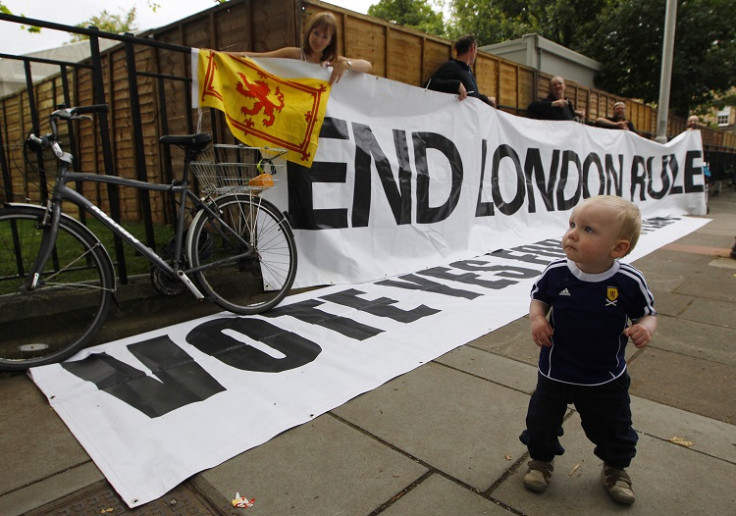Scottish Independence Means More Spending Cuts and Tax Rises

An independent Scotland faces years of tax rises and spending cuts if it is to get its public finances in check, claims an academic study.
According to a paper published by the National Institute of Economic and Social Research (NIESR), Scotland's long-run fiscal gap – the difference between expected future revenues and spending – would be more than double that of the UK's at 1.9% of GDP in the most optimistic projection.
This gap would have to be plugged with spending cuts and tax rises on top of those already planned by the UK government under its austerity programme.
"This more difficult long-run outlook arises for two reasons," said the paper by Rowena Crawford and Gemma Tetlow of the Institute for Fiscal Studies (IFS).
"At the moment public spending per person is significantly higher in Scotland than across the UK as a whole, mainly as a result of higher spending on public services (rather than higher spending on benefits). In 2011–12, this was more than matched by greater revenues from oil and gas.
"However, this has not always been the case in recent years and certainly will not be the case going forwards if Scottish spending levels are not changed, as eventually oil and gas reserves will be depleted and this source of revenues will dwindle."
In 2011/12, spending on public services for the benefit of Scotland was £7,932 per person, says the study, 17% higher than across the UK. During the same period, benefit spending per person in Scotland was £3,238 a year, 2% above the UK as a whole.
Despite the looming fiscal difficulties independence would bring if the country votes to split from the UK in its September 2014 referendum, the research said it offered opportunity as well as adversity for Scotland.
The country would be able to reform its tax and benefit system, as well as public spending, to better suit its specific needs.
"Many of the differences between the characteristics of Scotland and the UK suggest that Scotland should have a lower level of overall taxation than is optimal for the UK," said the study.
"However, the long-run fiscal pressures that our model suggests would face Scotland might point to a higher level of taxation there. A key challenge for an independent Scotland would be balancing these (potentially competing) pressures."
Lower taxes would make Scotland more competitive against the UK, but it would need to raise more from them in order to be fiscally sustainable in the event of independence.
© Copyright IBTimes 2025. All rights reserved.






















